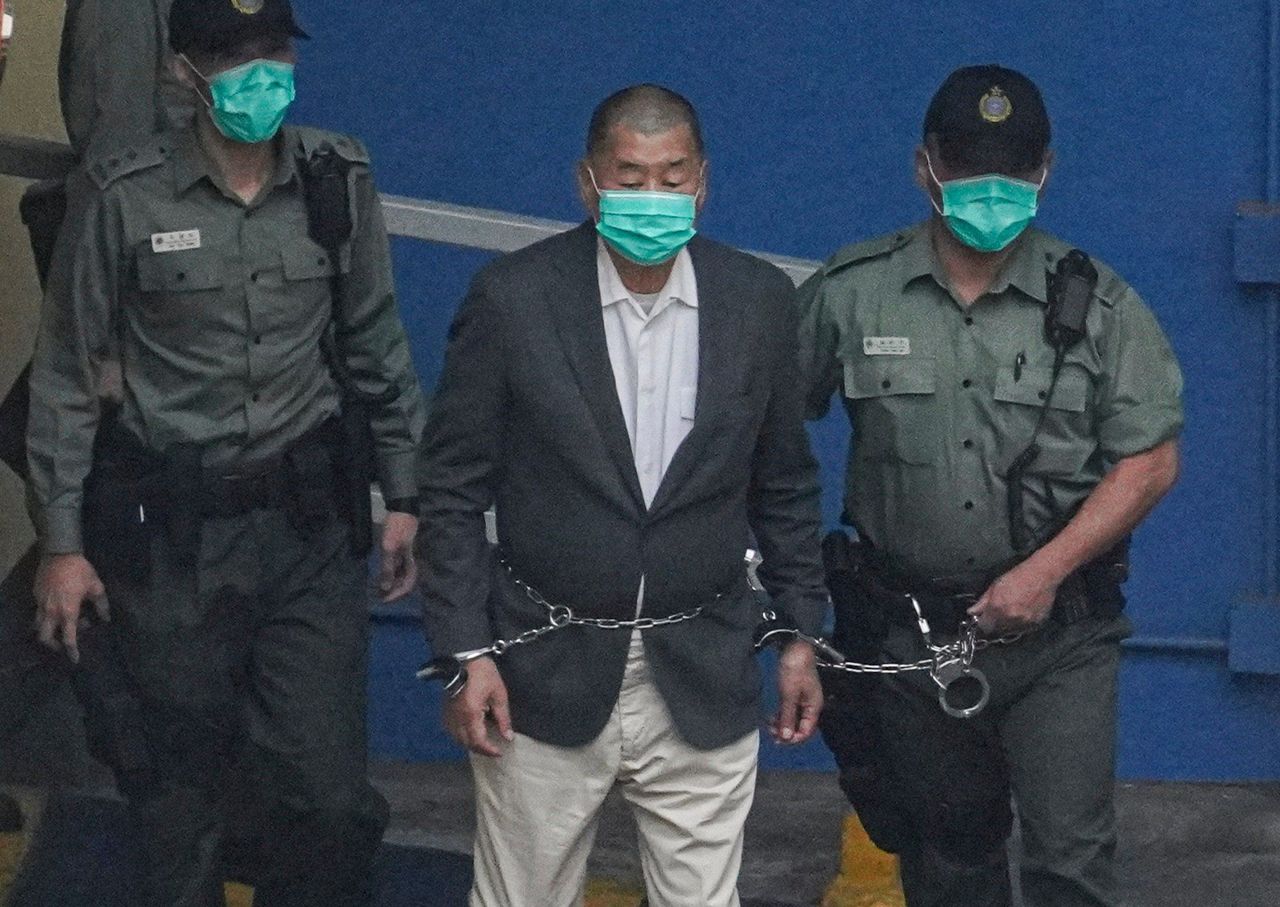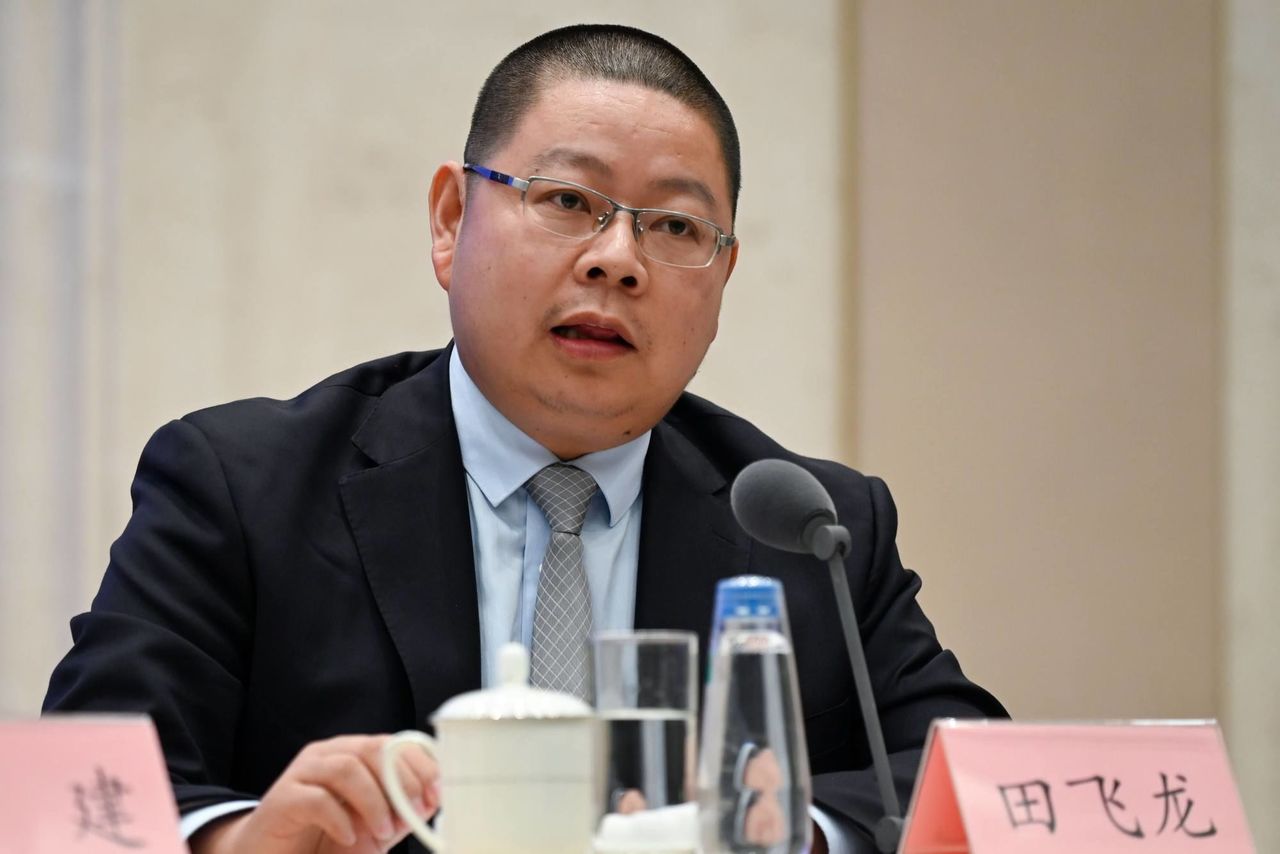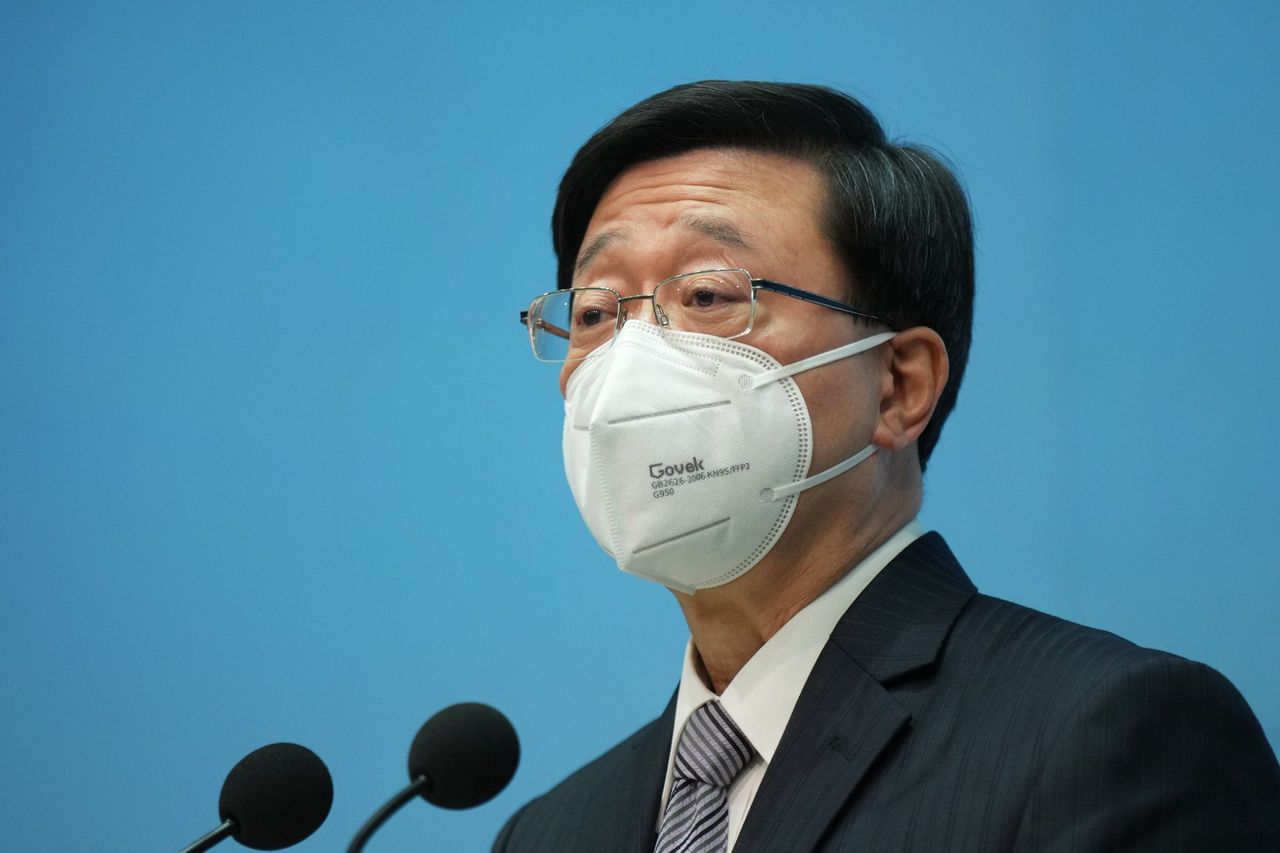City leader John Lee is asking Beijing’s top legislative body to interpret the law, with the committee’s next meeting scheduled for December 30.
The need to wait for Beijing’s decision on the role of foreign lawyers in national security cases could defer Hong Kong media tycoon Jimmy Lai Chee-ying’s trial by at least a month unless special meetings are called, according to analysts.
The founder of the now-defunct tabloid newspaper Apple Daily won his Court of Final Appeal bid on Monday to have British King’s Counsel Timothy Owen represent him at his trial on Thursday, when he faces charges of sedition and collusion with foreign forces under the Beijing-imposed national security law.
But shortly after the ruling, Chief Executive John Lee Ka-chiu said he had asked the National People’s Congress (NPC) Standing Committee, Beijing’s top legislative body, to decide whether such an appointment should be permitted given the need to safeguard national security.
Lee also said the secretary for justice would seek an adjournment of Lai’s national security trial. The media tycoon was first charged in December 2020, months after the security law was put in place.
 Media tycoon Jimmy Lai is facing charges of sedition and collusion with
foreign forces under the Beijing-imposed national security law.
Media tycoon Jimmy Lai is facing charges of sedition and collusion with
foreign forces under the Beijing-imposed national security law.The next standing committee meeting is on December 30, according to Tam Yiu-chung, Hong Kong’s sole delegate to the apex legislative body. Tam is one of the city’s pro-establishment hardliners who had spent the past week calling for the interpretation.
Tian Feilong, an associate professor at Beihang University’s Law School in Beijing and director of the Chinese Association of Hong Kong and Macau Studies, said he believed it could be done despite the short time frame as the NPC chairman had the power to convene an interim meeting of its standing committee “if there is a special need”.
He called Lai’s case “highly influential” while the Court of Final Appeal judges ruling based on a local legal angle “is likely to trigger Beijing to step in” and is “not good for Hong Kong’s judicial independence”.
Three Court of Final Appeal judges on Monday cited technical grounds in dismissing the secretary for justice’s last-ditch attempt to overturn the permission granted to Owen to join Lai’s defence team.
 Tian Feilong, an associate professor at Beihang University’s law school
in Beijing and director of the Chinese Association of Hong Kong and
Macau Studies.
Tian Feilong, an associate professor at Beihang University’s law school
in Beijing and director of the Chinese Association of Hong Kong and
Macau Studies.
The issue has upset some of the city’s most hardline Beijing loyalists over the past week, fuelling worries that lawyers practising overseas would be given access to top state secrets. They believe that Lai’s preliminary win over this point may become a precedent letting other foreign lawyers work in national security cases in the city in the future.
Albert Chen Hung-yee, a legal scholar at the University of Hong Kong, spoke of two possible outcomes after the government’s request to adjourn.
“The court can adjourn the case or the case can continue with Tim Owen until an interpretation is issued by Beijing,” he said.
The scholar, who specialises in Chinese and international law, argued that the Hong Kong court would have full discretion to do so as the trial will “involve an interpretation of the national security law”.
One thing that will make the process of the national security law interpretation less convoluted is that the matter is not required to go through a Hong Kong-based committee advising on the Basic Law in the way an interpretation on the mini-constitution did, according to Chen.
Article 65 of the national security law stipulates that the power of interpretation of the legislation shall be vested in the standing committee.
Pro-Beijing heavyweight Maria Tam Wai-chu, also a lawyer, said the court was likely to adjourn the case to avoid a waste of resources should the interpretation later cause the trial to terminate halfway and restart.
A barrister, who prefers to remain anonymous due to the sensitivity of the topic, said Lai would suffer financial loss and would also be at a disadvantage for being told last minute that he would not be able to access the barrister whom he had paid for and who had been handling his case all along. He feared the incident would cause the outside world to view the city’s legal system negatively.
 Hong Kong leader John Lee is asking Beijing’s top legislative body to
interpret the national security law, with the committee’s next meeting
scheduled for December 30.
Hong Kong leader John Lee is asking Beijing’s top legislative body to
interpret the national security law, with the committee’s next meeting
scheduled for December 30.
But legal scholar Thomas Kellogg, who studies the Hong Kong situation at Georgetown University in Washington, said Lai’s case underlined a wider issue.
“This move to block Tim Owen’s participation is part of a broader pattern of blocking due process rights in national security trials, which includes blocking the right to a jury trial and holding individuals – including Jimmy Lai himself – for extended periods in pre-trial detention, without access to bail,” he warned.
City leader Lee on Monday argued that rights of legal representation only extended to locally registered lawyers, not overseas ones.
The Hong Kong government has repeatedly hit back at what it saw as smearing, saying that rights to jury trials are not absolute while denial of bail is not uncommon in national security cases worldwide.
The third – and rather unlikely – outcome would be that Lai may decide to send a different barrister on Thursday when the trial is due to begin, doing away with all the brouhaha.
“We have no comment,” Lai’s legal team said, when asked about its next move.















